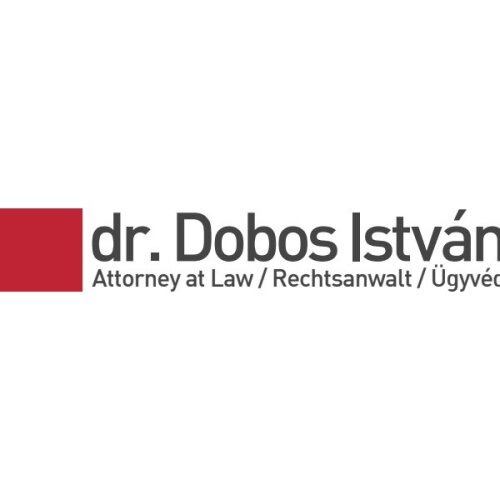Best Environmental Law & Compliance Lawyers in Hungary
Share your needs with us, get contacted by law firms.
Free. Takes 2 min.
Or refine your search by selecting a city:
List of the best lawyers in Hungary
About Environment Law in Hungary
Environmental law in Hungary is designed to protect the country's natural resources, ensure sustainable development, and maintain the quality of life for its inhabitants. Hungary places great emphasis on maintaining its diverse ecosystems, legally safeguarding against pollution, managing waste, and conserving its many rivers, lakes, and forests. Environmental regulations in Hungary are influenced by both local legislative frameworks and European Union directives. The government, along with various agencies, plays a critical role in enforcing these laws, ensuring compliance, and supporting initiatives that promote ecological resilience.
Why You May Need a Lawyer
There are several reasons why individuals or entities may need legal advice regarding environmental issues in Hungary:
- Compliance with environmental regulations when establishing or operating a business.
- Addressing potential legal challenges related to pollution or waste management.
- Handling disputes involving environmental harm or degradation.
- Seeking assistance with environmental impact assessments and corresponding legal requirements.
- Defending against accusations or penalties related to environmental law violations.
- Advocating for stronger environmental protections or challenging lax enforcement of existing laws.
Local Laws Overview
Hungary's environmental laws comprise a comprehensive set of regulations that govern areas such as air and water quality, waste management, hazardous substances, and nature protection. Key legal frameworks include:
- Environmental Protection Act: Establishes general principles and guidelines for protecting the environment and conserving natural resources.
- Water Management Act: Regulates the use and protection of water resources, focusing on sustainable use and pollution prevention.
- Waste Management Act: Aims to minimize waste generation and promote recycling and safe disposal.
- Nature Conservation Act: Protects biodiversity, habitats, and ecosystems, focusing on conservation measures for protected areas and species.
- Air Quality Protection Act: Imposes limits on pollution emissions and sets standards for air quality management.
Frequently Asked Questions
What is the penalty for violating environmental laws in Hungary?
Penalties can range from fines to operational suspensions and, in severe cases, criminal charges. The specific penalty depends on the nature and extent of the violation.
How are environmental disputes resolved in Hungary?
Environmental disputes can be resolved through negotiation, mediation, or litigation. Administrative bodies may also be involved in dispute resolution.
Who enforces environmental law in Hungary?
Hungary's environmental protection authorities and municipal bodies are primarily responsible for the enforcement of environmental laws.
Can individuals participate in environmental decision-making?
Yes, Hungary supports public participation in environmental decision-making, often through public consultations and the ability to challenge certain administrative actions in court.
What should I do if I discover illegal dumping?
Report the incident to local environmental authorities or law enforcement. Documentation, such as photographs, can be helpful in addressing the issue.
How are businesses expected to comply with environmental laws?
Businesses must conduct operations in accordance with environmental regulations, complete necessary impact assessments, and maintain proper permits.
Are there specific regulations for industrial pollution?
Yes, industrial activities are subject to stringent regulations regarding emissions, waste management, and resource use to minimize environmental impact.
What is an environmental impact assessment?
An environmental impact assessment (EIA) is a process that evaluates the potential environmental effects of a proposed project before it is approved.
How can I get involved in environmental advocacy in Hungary?
Joining local environmental organizations, participating in public consultations, or volunteering for conservation projects are ways to get involved.
What is Hungary's position on climate change?
Hungary is committed to reducing greenhouse gas emissions and aligning with EU climate targets, implementing policies for sustainable energy use and climate adaptation.
Additional Resources
Here are some additional resources and organizations that may be helpful:
- Ministry of Agriculture - Department of Environmental Protection
- Hungarian Environmental Partnership Foundation
- Central and Eastern European Environmental Data Network (CEEEDN)
- European Environmental Agency (EEA) - for guidance on EU directives
- Local Non-Governmental Organizations (NGOs) focusing on environmental protection and advocacy
Next Steps
If you need legal assistance regarding environmental issues in Hungary, consider the following steps:
- Identify Your Needs: Determine the specific legal aid you require, whether it's compliance, representation, or advocacy.
- Consult with Legal Experts: Reach out to lawyers or firms specializing in environmental law to discuss your case and receive guidance.
- Gather Documentation: Collect all relevant information, permits, contracts, and correspondence related to your issue.
- Explore Mediation: For disputes, consider mediation as a potential alternative to litigation, which can be both time-saving and cost-effective.
- Stay Informed: Keep abreast of local environmental law changes and updates that may impact your situation.
Lawzana helps you find the best lawyers and law firms in Hungary through a curated and pre-screened list of qualified legal professionals. Our platform offers rankings and detailed profiles of attorneys and law firms, allowing you to compare based on practice areas, including Environmental Law & Compliance, experience, and client feedback.
Each profile includes a description of the firm's areas of practice, client reviews, team members and partners, year of establishment, spoken languages, office locations, contact information, social media presence, and any published articles or resources. Most firms on our platform speak English and are experienced in both local and international legal matters.
Get a quote from top-rated law firms in Hungary — quickly, securely, and without unnecessary hassle.
Disclaimer:
The information provided on this page is for general informational purposes only and does not constitute legal advice. While we strive to ensure the accuracy and relevance of the content, legal information may change over time, and interpretations of the law can vary. You should always consult with a qualified legal professional for advice specific to your situation.
We disclaim all liability for actions taken or not taken based on the content of this page. If you believe any information is incorrect or outdated, please contact us, and we will review and update it where appropriate.
Browse environmental law & compliance law firms by city in Hungary
Refine your search by selecting a city.

















